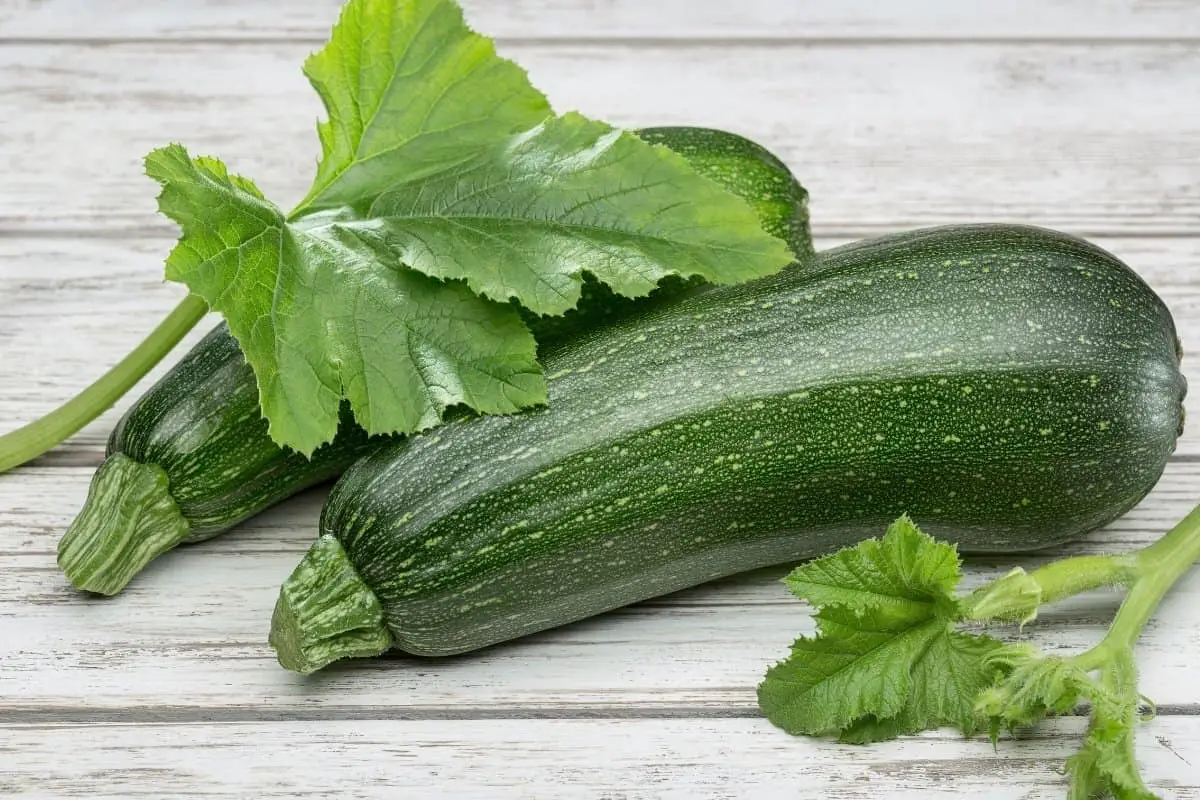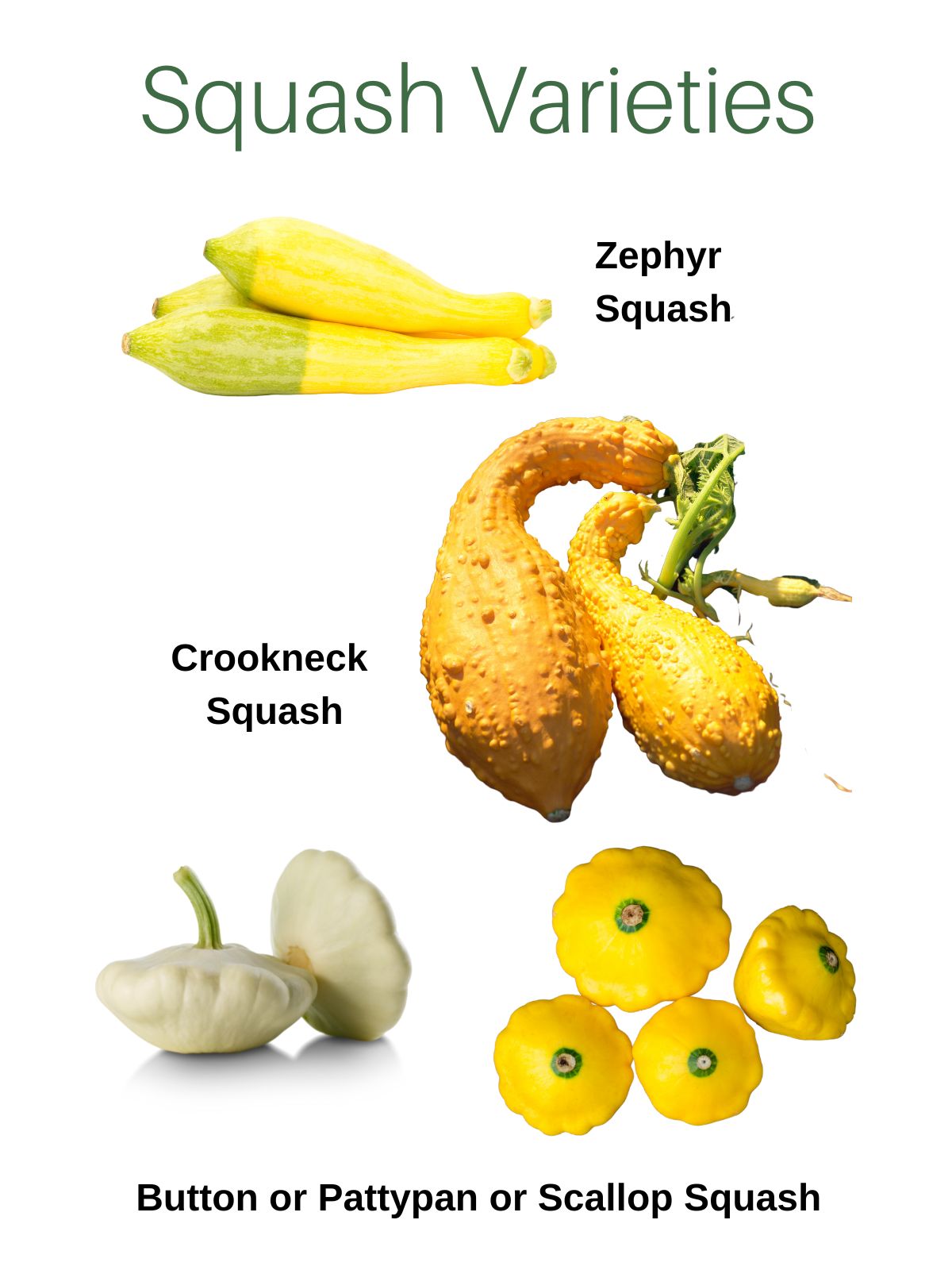Ahoy, all you vegetable fans! Are you ready to find out the difference between squash and zucchini? It may look like they are one and the same, but in fact, these two vegetables are actually quite different! Join us on this fun and exciting journey to learn more about these two vegetables!
They’re often used interchangeably, and are strikingly similar in flavor and texture, making it difficult to ascertain if there’s actually a difference. So, here’s the thing: All zucchini are squash, but not all squash are zucchini.

When Are They in Season?
Zucchini is at its peak during the cheerful Spring, Summer, and Autumn seasons. Meanwhile, squash is at its finest during the sizzling Summer and Autumn months.
Both zucchini and squash are nutrient-dense vegetables that offer numerous health benefits. Both are high in vitamins A and C, as well as dietary fibre, potassium, and magnesium. They are also low in calories – perfect for dieters .
Zucchini has slightly more potassium than squash, as well as higher levels of phosphorus, calcium, and vitamin B6. It is also higher in carbohydrates and lower in fat than squash.
Overall, both zucchini and squash are excellent sources of essential vitamins and minerals, so it’s best to include both in your diet.

- Green Zucchini – is the classic and most common variety; they have a mild flavour with a delicate and smooth texture when picked on the smaller side. If left to grow too big, however, they turn tough and woody, but their flavour is more developed.
- Dark Green Zucchini – also known as Black Beauty, has a truly dazzling dark green skin that looks close to black. It has a slender shape and crisp white flesh.
- Round Zucchini – just like the longer ones; the only difference is their shape. Sweet when small and savoury when larger, these are great for spiralizing and stuffing.
- Yellow Zucchini – keeps its bright colour when cooked; it is the same as green zucchini, but it can be used for a more colourful effect.
- Zucchini Costata – is an Italian heirloom variety with heavily ribbed fruit that look like stars when sliced and served. It has soft, thin skin and a rich, nutty flavour with flesh inside.
- Lebanese Zucchini – have a pale green colour and are plump tear-shaped fruits with a sweet flavour.
- Crookneck Squash – has a distinct narrow top with a round curvaceous bottom half. They have a mild zucchini flavour and are often bright yellow and sometimes light green.
- Zephyr Squash – is a fun hybrid; its unique shape is crooked yet slender, and its two-toned appearance is unmistakable it has a faded yellow stem at the top with a pale lime green and roundish bottom. It has a sweet and nutty flavour with a faint grassy finish.
- Button Squash – also called patty pan squash or scallop squash. Button squash can be bright green to deep yellow in colour. Button squash has a mild flavour with soft edible seeds; they are delicate.
- Zucchini Flowers – also known as zucchini blossoms, are the edible flowers of the zucchini plant. They are bright yellow in colour and are one of the most popular edible flowers. They have a mild, slightly sweet flavour and a delicate texture. We love using them raw in salads or stuffing them and roasting them or stuffing them, battering them and then deep frying them – yum ! Head over to our zucchini flower post for more on these floral wonders.

Choose glossy-skinned squash and zucchini with few blemishes. Pick firm ones and avoid squash and zucchini that are soft or spongy. The freshest zucchinis will have a few tiny hairs on them. Button squash is delicate, so look for glossy, unmarked squash, treat it carefully and try to use it soon after buying.
Store unwashed zucchini and squash in the warmer part of your fridge; washing promotes decay.
There is little to do in the preparation of zucchini and squash; just wash in cold water, cut off any blemishes, the tops and ends. For larger varieties, you may need to remove the seeds.
Summer squash and zucchini are extremely versatile vegetables and can be prepared in a variety of ways.
You can roast, sauté, bake, grill, or even use them raw in salads. Roasting is a great way to bring out their natural sweetness while sautéing is perfect for creating a quick and delicious side.
Baked dishes like quiches and gratins are also great for incorporating summer squash and zucchini. Or remove their insides for stuffing and roasting.
Grilling is a great way to add a smoky flavour to the vegetables, and they can be served as a main dish or side. Slice them diagonally or in long thick strips for this so you get more surface area to grill.
For a lighter option, you can add them raw to salads or smoothies or turn them into “zoodles” with a spiralizer or peel them into ribbons with your vegetable peeler. Check out our zucchini noodle post for everything zoodle!
So, Are Squash and Zucchini the Same?
They look and taste strikingly similar! But heres the scoop: All zucchini are a type of squash, but not all squash are a zucchini
Squash are members of the gourd family which is broken into winter squash and summer squash.
Winter squash includes spaghetti squash, butternut squash, and acorn squash. They have hard outer skins with tough seeds inside that can’t be eaten.
Zucchini, on the other hand, is a summer squash, along with its cousins yellow squash, crookneck squash and button squash (aka pattypan or scallop squash),. The skins and seeds of summer squash can be eaten. What confuses matters is how much zucchini and squash look alike – twins!
The best way to distinguish between the two is by their colour – zucchini is generally a shade of green, while yellow squash is, you guessed it, bright yellow!
Difference Between Zucchini and Courgette
FAQ
Is zucchini same as green squash?
Do squash and zucchini taste the same?
What is the green squash called?
Which is better zucchini or squash?
Are all zucchini and squash the same?
They are generally side by side in the grocery store, and often at the same price. We should state right up front: all zucchini are squash, but not all squash are zucchini. Specifically zucchini is a summer squash (as is the yellow squash).
Are squash and pumpkin the same?
Pumpkin and squash both belong to the same plant family, Cucurbitaceae. The main difference between pumpkin and squash is that the pumpkin stem is hard and jagged, while the squash stem is light and hollow. In other words, a pumpkin is a type of squash but not all squash are pumpkins.
Is yellow squash the same as zucchini?
Yellow squash (or zucchini) is the star of dishes as disparate as Summer Squash Soup with Basil, and Summer Squash and Bacon Galette. So while you may say “zucchini” and we may say “squash,” in the kitchen you really can’t go wrong with either.
What is the difference between summer squash and zucchini?
On the other hand, zucchini tends to be a darker shade of green, featuring a uniform cylindrical shape with a tapering end. Skin: Both vegetables have edible skin and soft, tender flesh. This is a key feature that differentiates summer squash from winter squash. The skin on summer squash is generally edible, no need to peel.
